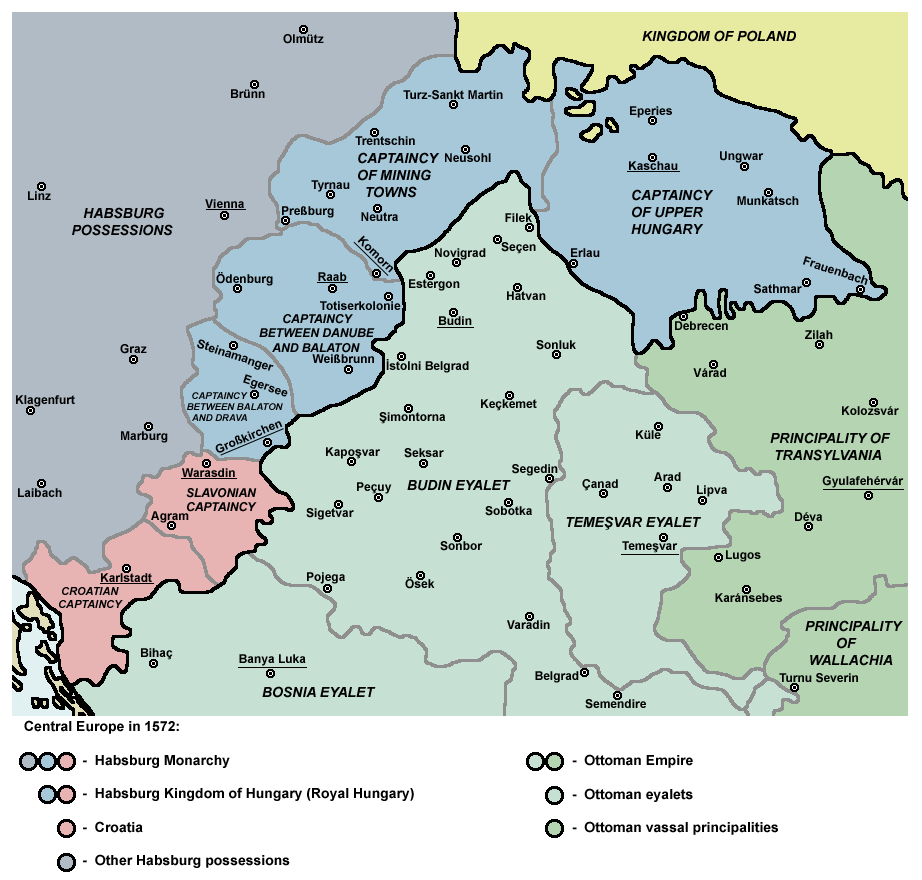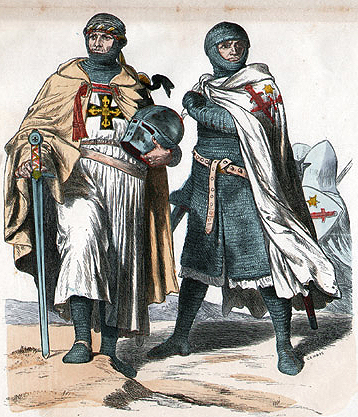|
Balthasar Báthory
Balthasar Báthory de Somlyó (; 1560 – 11 September 1594) was a Transylvanian politician from the Báthory, Báthory family, and like his brother, Prince of Transylvania, prince Andrew Báthory, an opponent of the House of Habsburg, Habsburgs in Transylvania. Biography Balthasar was born around 1560 to a wealthy and powerful family, as son of Hungarian captain Andrew Báthory and his wife Margarita Majláth de Szatmár. He was raised in Kraków, with his younger brother Andrew, at the court of his uncle Stephen Báthory, who became King of Poland in 1576. By the time of Báthory's birth, the Kingdom of Hungary (1538–1867), Kingdom of Hungary was divided into three parts: A western under the control of the Habsburgs (who also had the title of King of Hungary), a central Ottoman Hungary, control of the Ottoman Empire, and in the form of oriental Principality of Transylvania (1570–1711), Principality of Transylvania, ruled by the Hungarian nobility. Stephen Báthory was ... [...More Info...] [...Related Items...] OR: [Wikipedia] [Google] [Baidu] |
Báthory Family
The House of Báthory () was an old and powerful Hungarian nobility, Hungarian noble family of the Gutkeled clan. The family rose to significant influence in Central Europe during the Late Middle Ages, holding high military, administrative and ecclesiastical positions in the Kingdom of Hungary. In the early modern period, the family produced several Prince of Transylvania, Princes of Transylvania and one King of Poland and Grand Duke of Lithuania (Stephen Báthory). Origins The Báthory family belonged to the ''Gutkeled'', a clan of Kingdom of Hungary, Hungarian Kingdom nobles, which traced its descent to the Swabian brothers ''Gut'' and ''Kelad'', who immigrated into the Kingdom of Hungary from the castle ''Stof'' (probably Staufen, Germany, Staufen im Breisgau or Hohenstaufen in Württemberg) during the reign of Peter Urseolo of Hungary, King Peter (reigned 1038–1046), who himself was partly of Venice, Venetian descent.Simon Kezai, Lázló Veszprémy, Frank Schaer (ed.), ' ... [...More Info...] [...Related Items...] OR: [Wikipedia] [Google] [Baidu] |
Ottoman Hungary
Ottoman Hungary () encompassed the parts of the Kingdom of Hungary which were under the rule of the Ottoman Empire from the occupation of Buda in 1541 until the Treaty of Karlowitz in 1699. The territory was incorporated into the empire, under the name ''Macaristan.'' For most of its duration, Ottoman Hungary covered Southern Transdanubia and almost the entire region of the Great Hungarian Plain. Ottoman Hungary was divided for administrative purposes into Eyalets (provinces), which were further divided into Sanjaks. Ownership of much of the land was distributed to Ottoman soldiers and officials with the remaining territory being retained by the Ottoman state. As a border territory, much of Ottoman Hungary was heavily fortified with troop garrisons. Remaining economically under-developed, it became a drain on Ottoman resources. During the centuries long three-way Hungarian–Habsburg–Ottoman wars the Hungarian population was highly decimated. Although there was some immigr ... [...More Info...] [...Related Items...] OR: [Wikipedia] [Google] [Baidu] |
Executed Hungarian People
Capital punishment, also known as the death penalty and formerly called judicial homicide, is the state-sanctioned killing of a person as punishment for actual or supposed misconduct. The sentence ordering that an offender be punished in such a manner is called a death sentence, and the act of carrying out the sentence is an execution. A prisoner who has been sentenced to death and awaits execution is ''condemned'' and is commonly referred to as being "on death row". Etymologically, the term ''capital'' (, derived via the Latin ' from ', "head") refers to execution by beheading, but executions are carried out by many methods, including hanging, shooting, lethal injection, stoning, electrocution, and gassing. Crimes that are punishable by death are known as ''capital crimes'', ''capital offences'', or ''capital felonies'', and vary depending on the jurisdiction, but commonly include serious crimes against a person, such as murder, assassination, mass murder, child murder ... [...More Info...] [...Related Items...] OR: [Wikipedia] [Google] [Baidu] |
Hungarian Politicians
Hungarian may refer to: * Hungary, a country in Central Europe * Kingdom of Hungary, state of Hungary, existing between 1000 and 1946 * Hungarians/Magyars, ethnic groups in Hungary * Hungarian algorithm, a polynomial time algorithm for solving the assignment problem * Hungarian language, a Uralic language spoken in Hungary and all neighbouring countries * Hungarian notation, a naming convention in computer programming * Hungarian cuisine Hungarian or Magyar cuisine (Hungarian language, Hungarian: ''Magyar konyha'') is the cuisine characteristic of the nation of Hungary, and its primary ethnic group, the Hungarians, Magyars. Hungarian cuisine has been described as being the P ..., the cuisine of Hungary and the Hungarians See also * * {{disambiguation Language and nationality disambiguation pages ... [...More Info...] [...Related Items...] OR: [Wikipedia] [Google] [Baidu] |
1594 Deaths
Events January–March * January 3 – Longvek, the capital of the Post-Angkor period, Kingdom of Cambodia, is conquered by the army of the Ayutthaya Kingdom (now Thailand), commanded by Naresuan, King Naresuan, after Siamese–Cambodian War (1591–1594), more than two years of war. King Chey Chettha I of Cambodia is able to flee to Laos, along with the former King Satha I, but the rest of the royal family is taken hostage, along with Prince Srei Soriyopear. * January 17 – Construction of the Junagarh Fort in the Mughal Empire's Bikaner State, principality of Bikaner (now in India's Rajasthan state) is completed after almost five years. * January 24 – William Shakespeare's play ''Titus Andronicus'', is given its first performance, presented by the Admiral's Men company of players at ''The Rose (theatre), The Rose'' in London. * January 25 – The Siege of Enniskillen (1594), siege of Enniskillen Castle in Ireland (at County Fermanagh) is started ... [...More Info...] [...Related Items...] OR: [Wikipedia] [Google] [Baidu] |
1560 Births
Year 1560 ( MDLX) was a leap year starting on Monday of the Julian calendar. Events January–March * January 7 – In the Kingdom of Scotland, French troops commanded by Henri Cleutin and Captain Corbeyran de Cardaillac Sarlabous sail across the Firth of Forth from Leith, which they are occupying, and fight with the Lords of the Congregation at Pettycur Bay near Kinghorn. * February 27 – Treaty of Berwick: Terms are agreed upon with the Lords of the Congregation in Scotland, for forces of the Kingdom of England to enter Scotland, to expel French troops defending the Regency of Mary of Guise. * March 7 – A Spanish-led expedition, commanded by Juan de la Cerda, 4th Duke of Medinaceli, overruns the Tunisian island of Djerba. * March 17 – Leaders of the Amboise conspiracy, including Godefroy de Barry, seigneur de La Renaudie, make an unsuccessful attempt to storm the château of Amboise, where the young French king and queen are residing. ... [...More Info...] [...Related Items...] OR: [Wikipedia] [Google] [Baidu] |
Holy Roman Empire
The Holy Roman Empire, also known as the Holy Roman Empire of the German Nation after 1512, was a polity in Central and Western Europe, usually headed by the Holy Roman Emperor. It developed in the Early Middle Ages, and lasted for a millennium until its Dissolution of the Holy Roman Empire, dissolution in 1806 during the Napoleonic Wars. For most of its history the Empire comprised the entirety of the modern countries of Germany, Czechia, Austria, the Netherlands, Belgium, Switzerland, Slovenia, and Luxembourg, most of north-central Italy, and large parts of modern-day east France and west Poland. On 25 December 800, Pope Leo III crowned the Frankish king Charlemagne Roman emperor, reviving the title more than three centuries after the fall of the Western Roman Empire in 476. The title lapsed in 924, but was revived in 962 when Otto I, OttoI was crowned emperor by Pope John XII, as Charlemagne's and the Carolingian Empire's successor. From 962 until the 12th century, the empire ... [...More Info...] [...Related Items...] OR: [Wikipedia] [Google] [Baidu] |
Sándor Kendi
Sándor Kendi de Szarvaskend (''Kendy''; ? – 30 August 1594)Markó 2006, p. 113. was a Hungarian noble in the Principality of Transylvania, member of the Royal Council, who served as Governor of Transylvania for the underage voivode Sigismund Báthory from 6 March 1583 to 1 May 1585. Family His father was Mihály Kendi, brother of voivode Ferenc Kendi and Antal Kendi who were executed by Isabella Jagiellon in 1558. His mother was Mihály's first (Zsófia Szilvásy) or second wife (Katalin Bánffy). Sándor Kendi married twice: his wives were Klára Patóchi and Anna Almádi. He had four children: * Zsuzsanna, her first husband was Balthasar Báthory * Krisztina, her second husband was Farkas Kovacsóczy * Zsófia * István, Chancellor of Transylvania (1608–1610), probably he was the last male member of the Kendi family. Career He started his work at the Transylvanian Chancellery in 1565. He became secretary of the Chancellery in 1568. He served as envoy of John Sig ... [...More Info...] [...Related Items...] OR: [Wikipedia] [Google] [Baidu] |
Sigismund Báthory
Sigismund Báthory (; 1573 – 27 March 1613) was Prince of Transylvania several times between 1586 and 1602, and Duchy of Racibórz, Duke of Racibórz and Duchy of Opole, Opole in Silesia in 1598. His father, Christopher Báthory, ruled Transylvania as Voivode of Transylvania, voivode (or deputy) of the absent prince, Stephen Báthory. Sigismund was still a child when the Transylvanian Diet, Diet of Transylvania elected him voivode at his dying father's request in 1581. Initially, regency councils administered Transylvania on his behalf, but Stephen Báthory made János Ghyczy the sole regent in 1585. Sigismund adopted the title of prince after Stephen Báthory died. The Diet proclaimed Sigismund to be of age in 1588, but only after he agreed to expel the Jesuits. Pope Sixtus V Excommunication (Catholic Church), excommunicated him, but the ban was lifted in 1590, and the Jesuits returned a year later. His blatant favoritism towards the Catholics made him unpopular among his Pro ... [...More Info...] [...Related Items...] OR: [Wikipedia] [Google] [Baidu] |
Voivode
Voivode ( ), also spelled voivod, voievod or voevod and also known as vaivode ( ), voivoda, vojvoda, vaivada or wojewoda, is a title denoting a military leader or warlord in Central, Southeastern and Eastern Europe in use since the Early Middle Ages. It primarily referred to the medieval rulers of the Romanian-inhabited states and of governors and military commanders of Poles, Hungarian, Lithuanian, Balkan, Russian people and other Slavic-speaking populations. In the Polish-Lithuanian Commonwealth, ''voivode'' was interchangeably used with '' palatine''. In the Tsardom of Russia, a voivode was a military governor. Among the Danube principalities, ''voivode'' was considered a princely title. Etymology The term ''voivode'' comes from two roots. , means "war, fight," while , means "leading", thus in Old Slavic together meaning "war leader" or "warlord". The Latin translation is for the principal commander of a military force, serving as a deputy for the monarch. In ... [...More Info...] [...Related Items...] OR: [Wikipedia] [Google] [Baidu] |
Christopher Báthory
Christopher Báthory (; 1530 – 27 May 1581) was voivode of Transylvania from 1576 to 1581. He was a younger son of Stephen Báthory of Somlyó. Christopher's career began during the reign of Queen Isabella Jagiellon, who administered the eastern territories of the Kingdom of Hungary on behalf of her son, John Sigismund Zápolya, from 1556 to 1559. He was one of the commanders of John Sigismund's army in the early 1560s. Christopher's brother, Stephen Báthory, who succeeded John Sigismund in 1571, made Christopher captain of Várad (now Oradea in Romania). After being elected King of Poland, Stephen Báthory adopted the title of Prince of Transylvania and made Christopher voivode in 1576. Christopher cooperated with Márton Berzeviczy, whom his brother appointed to supervise the administration of the Principality of Transylvania as the head of the Transylvanian chancellery at Kraków. Christopher ordered the imprisonment of Ferenc Dávid, a leading theologian of the Unitaria ... [...More Info...] [...Related Items...] OR: [Wikipedia] [Google] [Baidu] |





